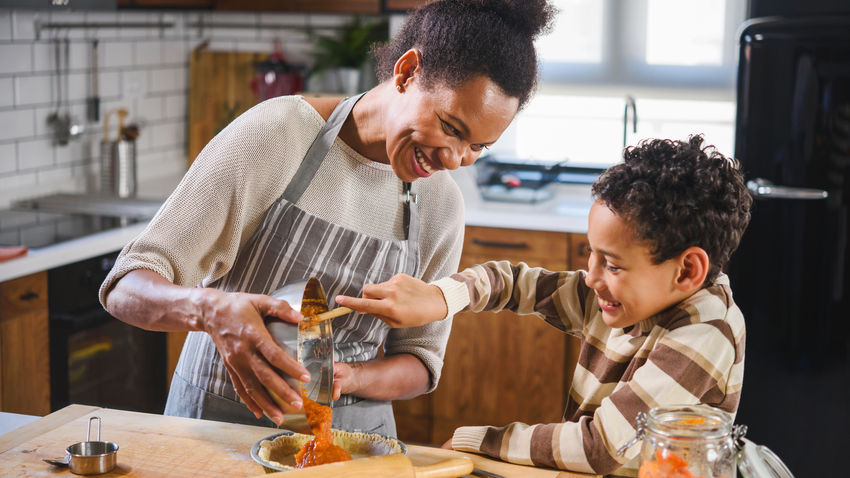
Nutrition is a vital part of overall health as we shelter in place during the COVID-19 pandemic. Here, Pamela Weisberg-Shapiro, program director for nutrition, and Marissa Cloutier, assistant professor of instruction in the Social and Behavioral Sciences Department, share tips on how to maintain healthy eating habits—nutritionally, emotionally, and socially. Both faculty members are registered dietitians.
Mindful eating over anxiety eating
In these uncertain moments and stir-crazy days, we may feel the urge to raid the refrigerator to get a little comfort, or just to fill time. A little is OK. But set aside a dedicated time and place to eat and appreciate the food—That's called mindful eating.
"Have a routine, so you aren’t saying 'I think I'm hungry' when it's really that you're bored," Shapiro says. Try not to eat absentmindedly while working or while anxiously browsing news on the computer, Cloutier says. "It's too easy to sit in front of the TV freaking out, and suddenly you've finished the whole bag of chips."
Frozen is fine
Fresh fruits and veggies are great, but eventually they spoil. With grocery shopping trips becoming less frequent, store-bought frozen produce is a great alternative, Shapiro says. “At some level, they're actually better than fresh, because they're frozen at their peak, so that preserves the nutrients." Freezing fresh fruits and vegetables at home before they turn bad is another way to avoid waste. The fruits and vegetables won’t always retain the same texture, but they can be used later in smoothies, stir-fry and other recipes, she says.
Avoid supplements
Cloutier hopes people don't turn to questionable dietary supplements that claim to boost immunity. "A lot of people are pushing supplements and taking advantage of this. Watch out for the snake oil salesman," she says. Even established supplements sold to build muscle mass or bolster vitamin intake aren't the best idea right now, she says. "High-dose supplements stress your body, and this is not the time to stress out your body," she says. Stress can lower immunity. Nothing beats whole foods like fruits, vegetables and healthy proteins such as fish, poultry, beans and nuts. "If you want a supplement, eat an orange. That is power right there," Cloutier says.
Have a grocery shopping strategy
We're all making fewer trips to the supermarket, and it's hard to predict what might be in short supply. It's best to arrive prepared. Try to have meals planned, with lists of needed ingredients ready, Shapiro suggests. There are websites and apps that can help turn recipes into shopping lists. And be aware in advance of alternative ingredients you could use, in case what you're looking for isn't available.
Normal cleaning seems to be OK
There's no evidence that the coronavirus is transmitted via food or food packaging. You don’t need to wash fruits and vegetables with soap. Experts believe that normal cooking can kill the coronavirus along with other pathogens. The usual food safety precautions still apply, and everyone should wash their hands before cooking and eating and after handling food from the store or a restaurant delivery.
Use food to connect
Though households may be isolated, meals and cooking can be a way to find quality time together and keep children engaged. "Eating together is a communal thing. Celebrate food together," Cloutier says. Cooking itself can be a therapeutic escape from stress. "Kids are at home. Try to get them off those video games and in the kitchen to learn about food. Get to kneading the dough and baking the bread together. The experience of being together and cooking together is a great way to appreciate each other and what we have," Cloutier says.
